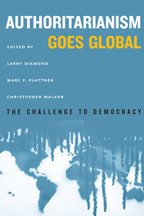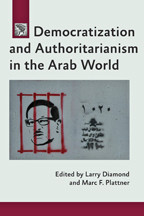
Book Details
Acknowledgments
Introduction
Part I. Democracy and Liberty: Universal Values?
1. Democracy as a Universal Value
2. Buddhism, Asian Values, and Democracy
3. Confucianism and Democracy
4. Muslims and
Acknowledgments
Introduction
Part I. Democracy and Liberty: Universal Values?
1. Democracy as a Universal Value
2. Buddhism, Asian Values, and Democracy
3. Confucianism and Democracy
4. Muslims and Democracy
5. How Far Can Free Government Travel?
6. Democracy and Liberty: The Cultural Connection
7. From Liberalism to Liberal Democracy
Part II. Consolidating Democracy
8. Toward Consolidated Democracies
9. Illusions about Consolidation
10. O'Donnell's "Illusions": A Rejoinder
11. Illusions and Conceptual Flaws: A Response
12. What Is Democratic Consolidation?
Part III. Foundations of Successful Democracy
13. What Makes Democracies Endure?
14. Party Systems in the Third Wave
15. What Makes Elections Free and Fair?
16. Federalism and Democracy: Beyond the U.S. Model
17. Markets, Law, and Democracy
18. Free Politics and Free Markets in Latin America
19. A New Jurisprudence for Africa
20. How Democracies Control the Military
Part IV. Prospects and Challenges for Democracy in the New Century
21. A Quarter-Century of Declining Confidence
22. Latin America at the Century's Turn -
23. The Postcommunist Divide
24. Putin's Russia: One Step Forward Two Steps Back
25. Will China Democratize
26. Is Pakistan the (Reverse) Wave of the Future?
Index





